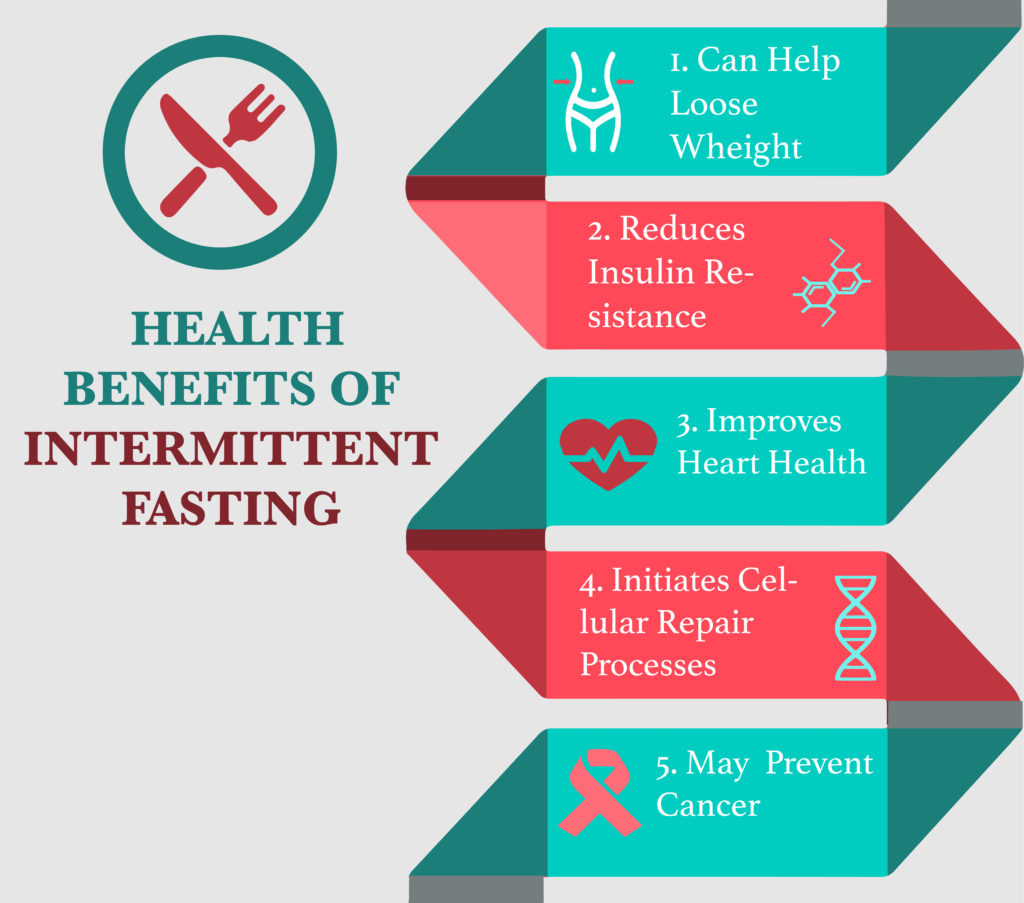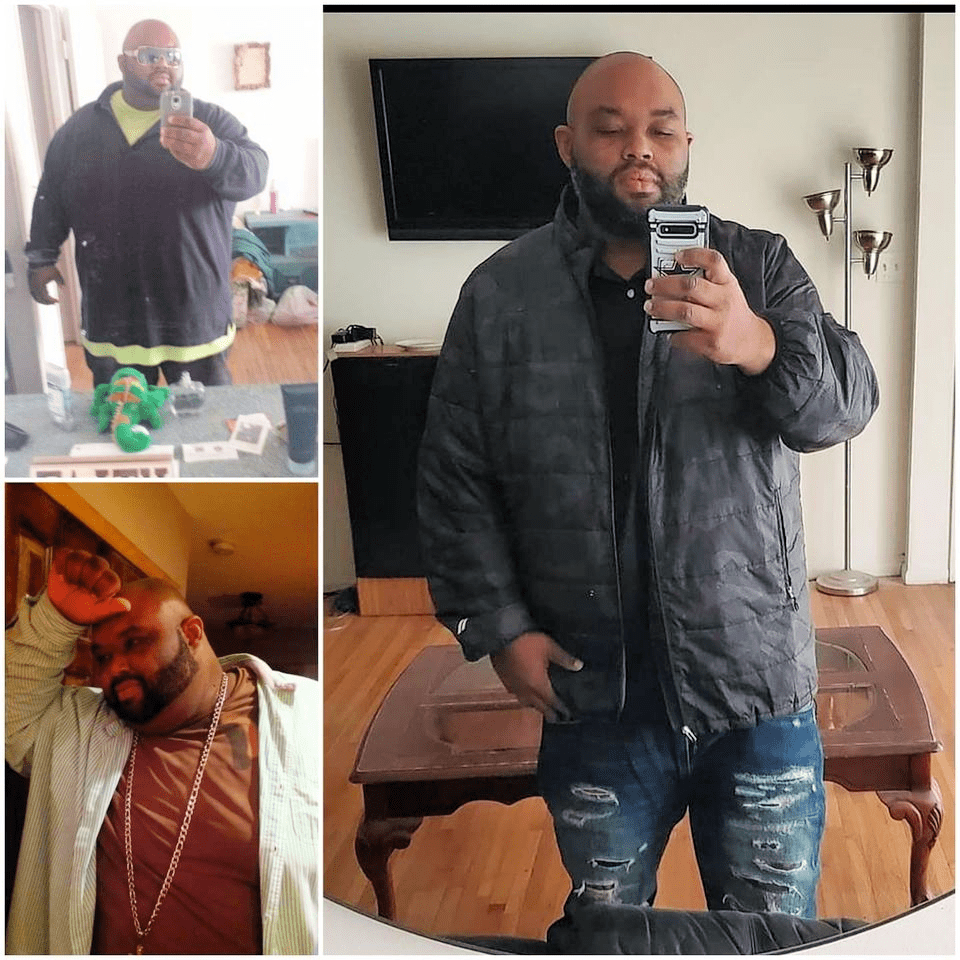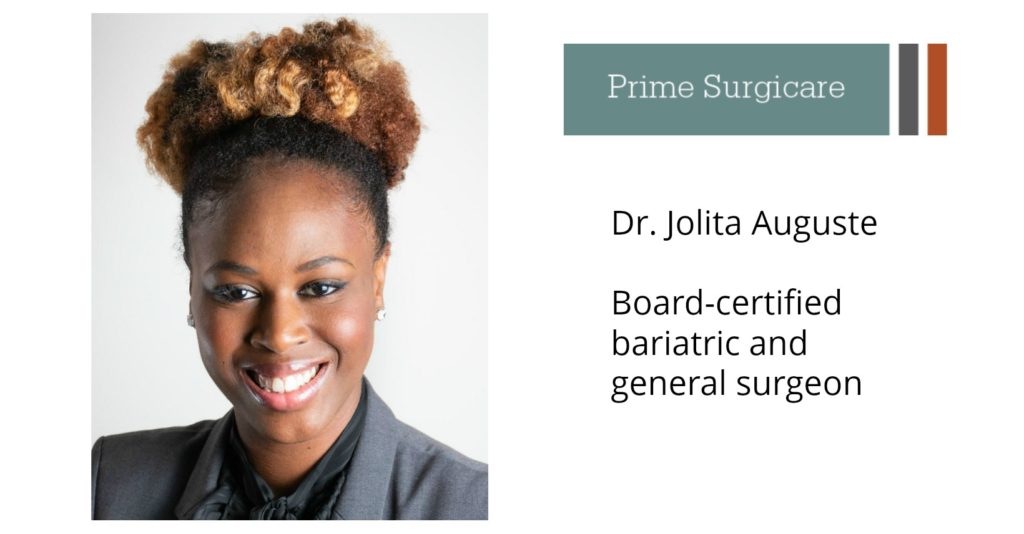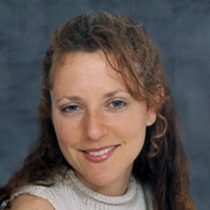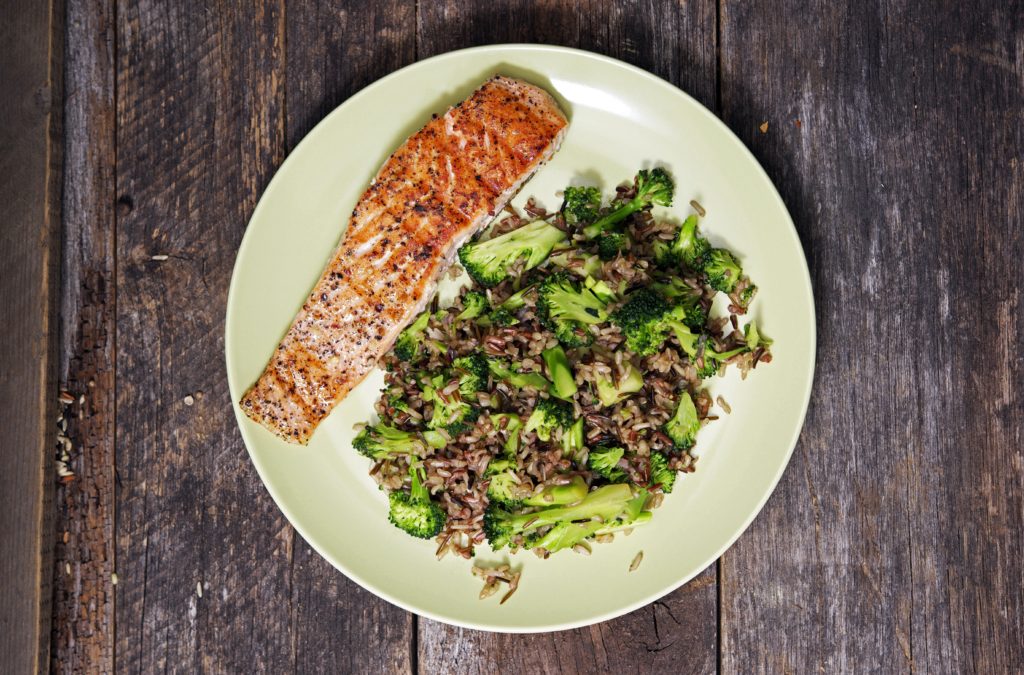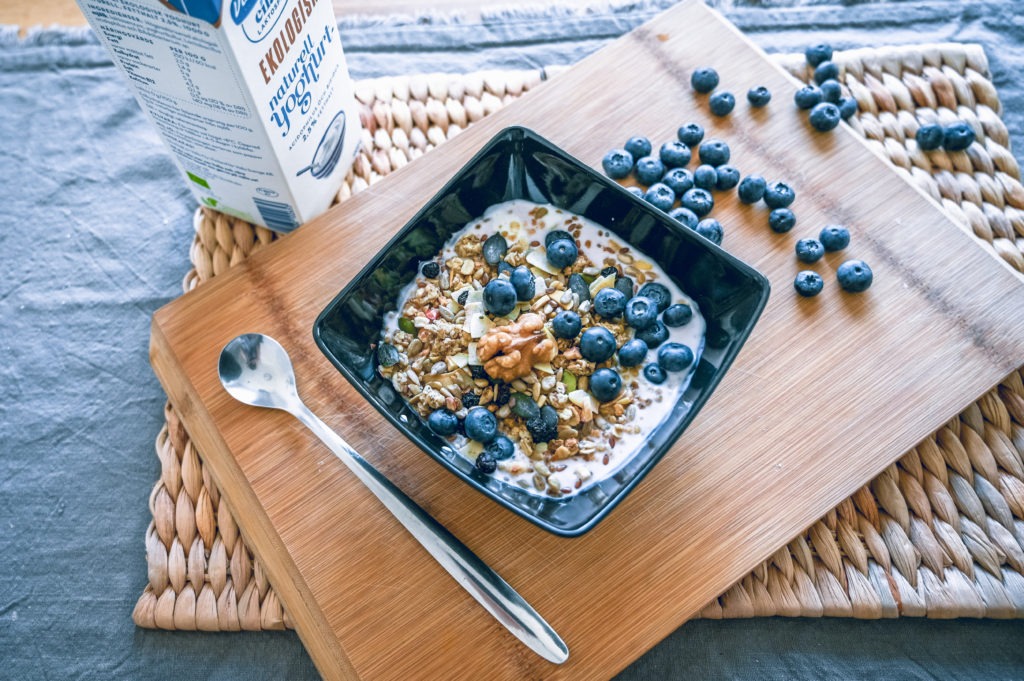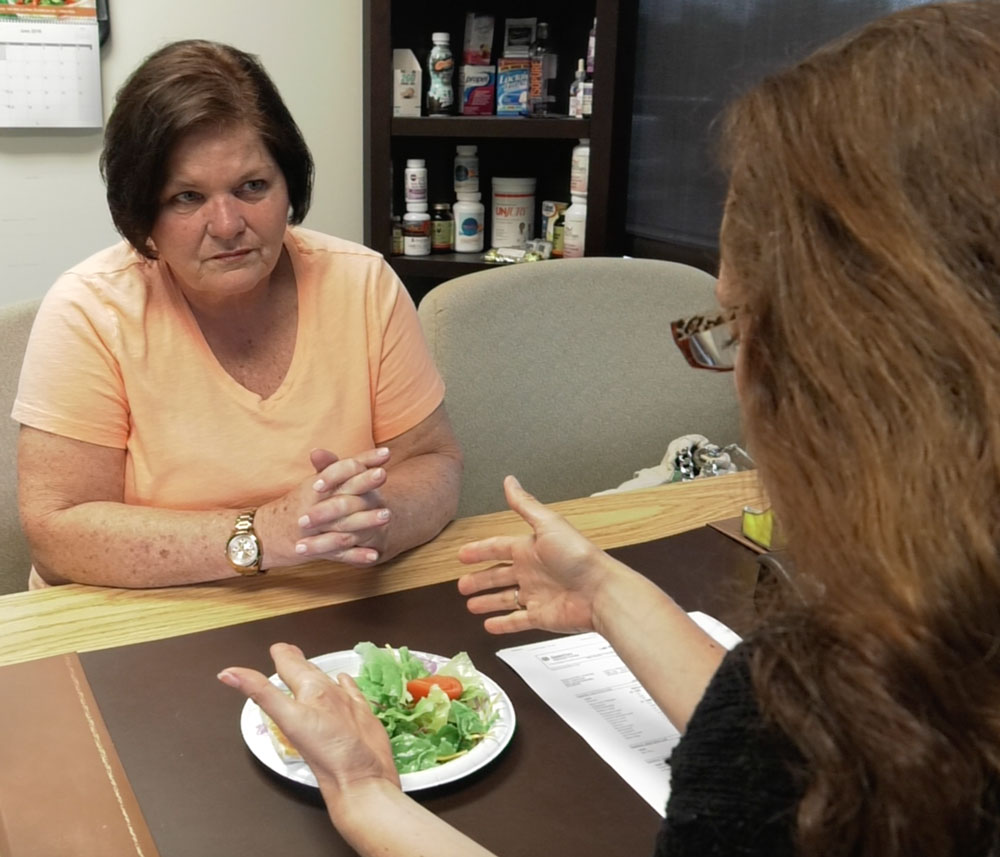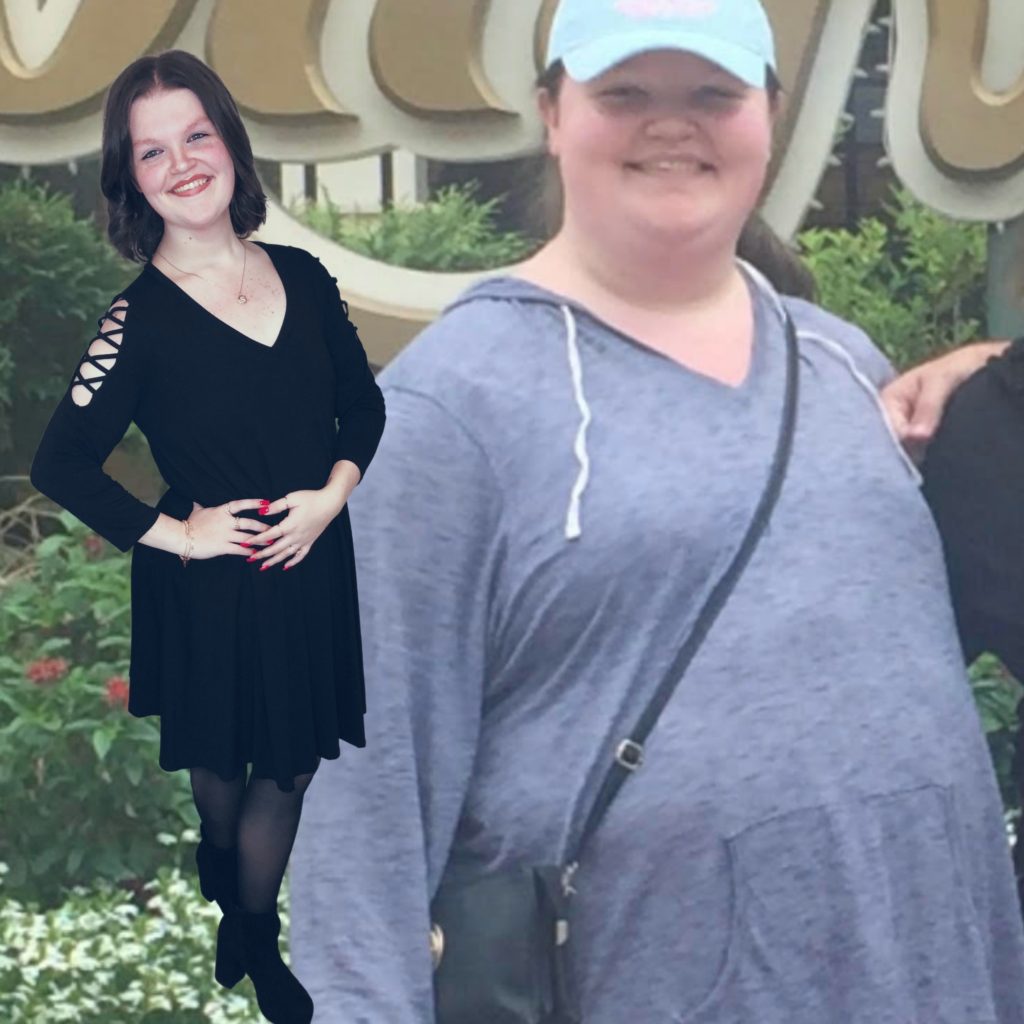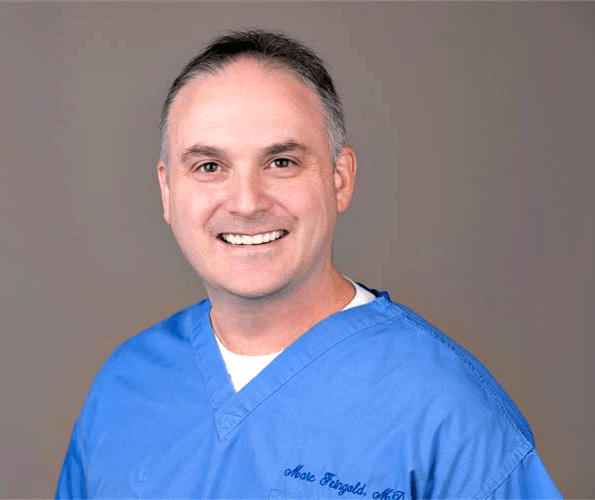“Your life is worth the effort. Release yourself from the extra weight you have to carry around with you all day, every day. Don’t give up on yourself. Once you make the choice to proceed, do not stop for anything. When times are hard, look back where you started: Look at pictures; remember how tired you were. Fight on. You will come out on top. You will win.”
Catherine DaSilva
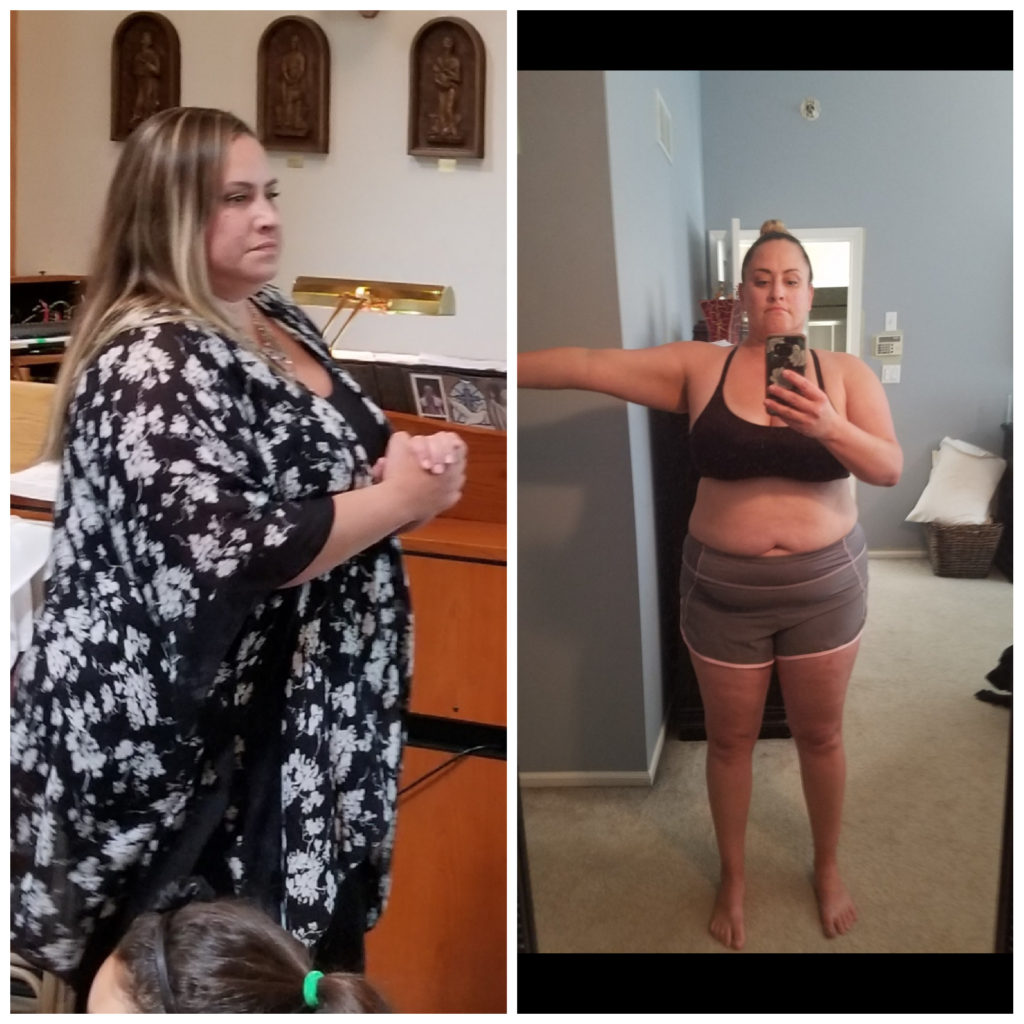
Catherine Dasilva before gastric sleeve surgery.
Catherine DaSilva lives the life of many New Jersey women, managing a demanding full-time career and being an active wife and a mother of two school age children. Living in seaside Manahawkin, she built a terrific life, except for one inescapable albatross around her neck—her weight.
She did not grow up living with obesity; the weight slowly crept on during adulthood—sitting at a desk job all day, having children and just being too busy to focus on her own health.
Doctor visits entailed Catherine getting on the scale standing backward, so she didn’t have to face that number on the scale. Reaching age 40, the extra weight began to take a toll on the otherwise healthy woman.
During both pregnancies, she had gestational diabetes, putting her at higher risk of developing type 2 diabetes later in life. She was also taking medication for high blood pressure and an underactive thyroid.
With two very active children and a high-stress job in the legal profession, Catherine often felt exhausted and found it hard to keep up with everyday living.
When the constant cycle of dieting eventually put her weight back where she started, Catherine began asking for bariatric surgeon recommendations in New Jersey.
Firefighters recommend bariatric surgeon for Catherine
One of her husband’s business clients was the Neptune Fire Department. Several firefighters and EMT workers had also been dealing with obesity and chose to have sleeve surgery or gastric bypass. They all recommended one surgeon—Dr. Seun Sowemimo of Prime Surgicare.
Monmouth County EMT Saves His Own Life with Bariatric Surgery
“Traveling up to Freehold from Manahawkin is almost an hour drive each way,” Catherine says. “But when I heard all of the patient reviews from the firefighters, I was more than willing to do it.”
During her first consultation with Dr. Seun, she stepped on the scale backward, as always. While they discussed Catherine’s health and the benefits of the gastric sleeve, which Dr. Seun recommended for her case, he mentioned her current weight, 260 pounds.
“I nearly fell off my chair,” Catherine recalls. “I knew I had some weight to lose, but I never, ever thought I weighed that much.”
Catherine decided to proceed with the surgery that day, losing 16 pounds before April 2019, when she had a complication-free sleeve gastrectomy or “VSG.”
Catherine transforms her health and lifestyle
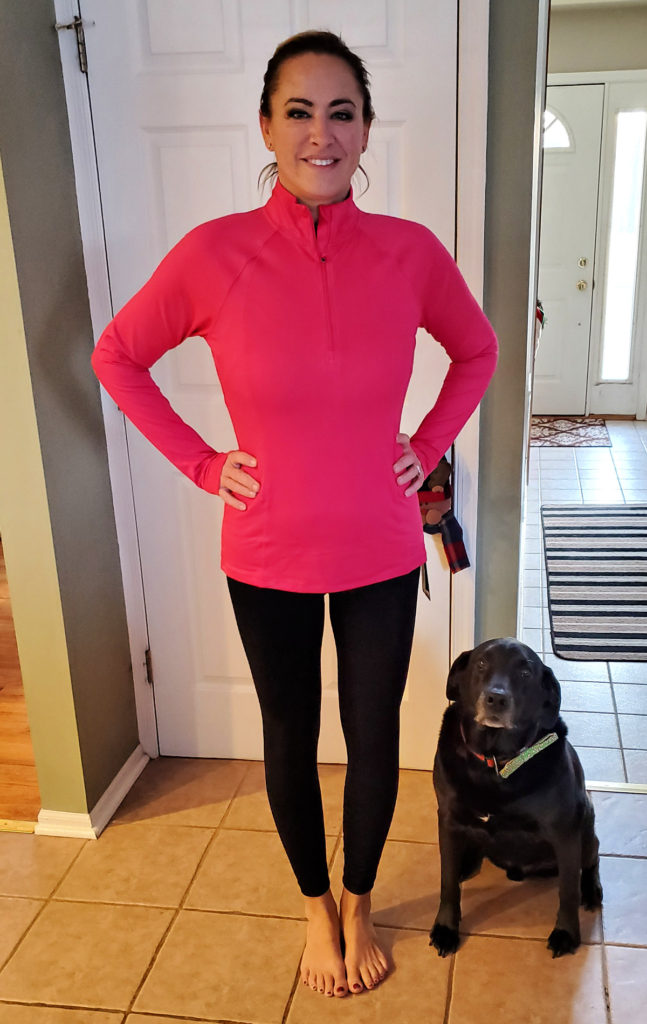
Now a committed runner, Catherine has transformed her health and her appearance.
As soon as she was cleared to begin exercising, she started walking around her house non-stop for 20 minutes at a time. Then she headed outside to walk longer and further.
The walks turned into jogging. Jogging turned into running, which increased to 5-7 miles five days/week (sometimes broken into two runs, morning and night, due to her tight schedule).
As the weight came off, and Catherine changed her lifestyle 360 degrees, she signed up for her first of several 5Ks.
She added light weight training 1-2/days a week when she rested her body from the running regimen.
Adopting a plant-based diet – taking nutrition to the next level
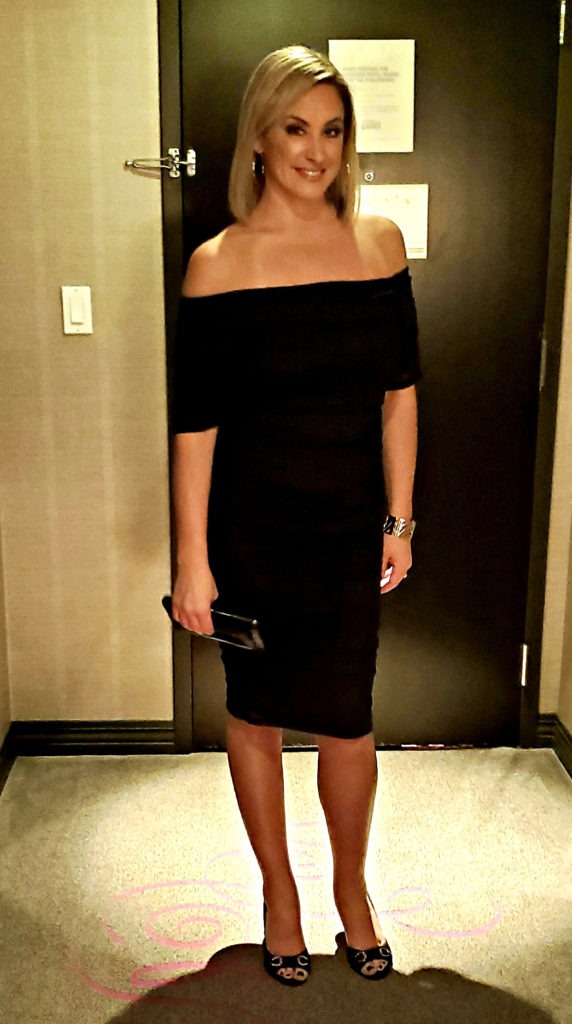
Catherine celebrating after losing 115 pounds.
Then she decided to transform the foods she was putting into her body.
“Dr. Seun explained why he started a whole food plant-based diet and all the benefits he had derived from it,” Catherine recalls. “He lost weight, gained more energy and just felt better.”
Dr. Seun explains his transition to whole food plant-based nutrition and his subsequent weigh loss.

Catherine’s move to plant-based nutrition inspired her backyard garden.
Catherine decided that she would transform her diet exactly the way she has transformed her fitness strategy.
She persuaded her husband to adopt a plant-based diet; he also lost weight and loved how this nutrition plan made him feel.
She also began growing her own food in her backyard, including vegetables, fruits and herbs (above).
“I follow the plan most of the time, but I will have some fish now and then,” Catherine says.
She made a game out of finding tasty plant-based recipes and recommends following chef Charity Morgan, whose recipes are filling, rich and delicious.
“Catherine was clearly motivated to improve all facets of her health, so recalibrating her nutrition strategy was a natural progression,” says Dr. Seun Sowemimo. “From the beginning, she looked at bariatric surgery as more than just an operation—it was a tool to help her transform her life.”
Dr. Seun explains that weight loss has been proven in multiple studies to significantly increase longevity and decrease risk of serious chronic medical conditions, including:
- Heart disease
- Diabetes
- Sleep apnea
- High cholesterol
- Depression
- Many types of cancer
Catherine loses 115 pounds and gains valuable insight into bariatric weight loss

Catherine enjoys the benefits of her hard work (Summer 2020).
In the summer of 2020, Catherine, who is 5’7”, reached her goal weight of 145 pounds, achieving a weight loss of 115 pounds in a little over a year.
“I recently saw my PCP doctor, William Glenn, DO, of the Family Medicine Center in Manahawkin, and got some great news,” Catherine noted.
“It was great to see how successful Catherine has been with her weight loss,” notes Dr. Glenn. “She was very upbeat about her lifestyle change, and based upon her lab results, we were able to reduce her blood pressure medication dosage.”
Dr. Glenn emphasized that Catherine’s successful weight loss, and achieving a normal BMI, can be attributed to her recognizing that bariatric surgery is not just an operation, it’s a lifelong commitment to healthy eating and healthy living.
He states that people who have surgical weight loss, and eventually resume former poor nutrition and health habits, can experience weight regain.
Dr. Glenn commended Prime Surgicare’s Bariatric Success Program, which includes several support services to bariatric patients: bi-monthly Support Group meetings (currently on Zoom), private sessions with a bariatric dietitian, a low-cost bariatric fitness exercise program at CentraState Fitness & Wellness Center and a monthly Saturday morning workout (walk, jog or bike) with Dr. Seun (currently done remotely).
Having the courage and dedication to lose 115 pounds, Catherine shares a few words of encouragement to others who may be considering a surgical weight loss solution—
“You can do this. It’s not going to be easy, but wow—it’s going to be so, so worth it.”
_______________________________________________________________________
 Dr. William B. Glenn is a board-certified in Family Medicine, Geriatric Medicine and Sports Medicine and part of the Family Medicine Center with offices in Manahawkin and Little Egg Harbor. Dr. Glenn earned his medical degree from the Philadelphia College of Osteopathic Medicine and completed his residency at the Naval Hospital – Camp Pendleton in Oceanside, CA. For appointments, please call (609) 597-7394 or visit https://www.familymedicinecenter.info/.
Dr. William B. Glenn is a board-certified in Family Medicine, Geriatric Medicine and Sports Medicine and part of the Family Medicine Center with offices in Manahawkin and Little Egg Harbor. Dr. Glenn earned his medical degree from the Philadelphia College of Osteopathic Medicine and completed his residency at the Naval Hospital – Camp Pendleton in Oceanside, CA. For appointments, please call (609) 597-7394 or visit https://www.familymedicinecenter.info/.
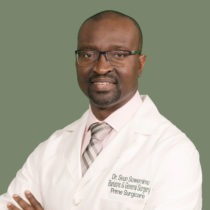 Dr. Seun Sowemimo is an obesity specialist and board-certified Bariatric and GI surgeon at Prime Surgicare, with offices in Freehold and Jackson, NJ. For telehealth appointments or to learn more about surgical weight loss or treatment for obesity, call (732) 414-2707.
Dr. Seun Sowemimo is an obesity specialist and board-certified Bariatric and GI surgeon at Prime Surgicare, with offices in Freehold and Jackson, NJ. For telehealth appointments or to learn more about surgical weight loss or treatment for obesity, call (732) 414-2707.


